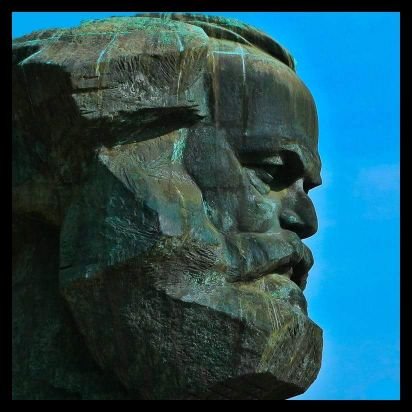Archivo
«Romanticism in the English Social Sciences: E.P. Thompson & Raymond Williams»: Michael Löwy, Robert Sayre
 In a passage of the Grundrisse, Marx makes the following remark on the Romantic perspective:
In a passage of the Grundrisse, Marx makes the following remark on the Romantic perspective:
«It is as ridiculous to yearn for a return to that original fullness as it is to believe that with this complete emptiness history has come to a standstill. The bourgeois viewpoint has never advanced beyond this antithesis between itself and this romantic viewpoint, and therefore the latter will accompany it as legitimate antithesis up to its blessed end.»(1)
This passage is interesting not only because it reveals Marx’s attitude towards Romanticism (he acknowledges the essence of the Romantic critique, even while in a dialectical stance situating himself beyond the antithesis), but also because it suggests that the Romantic perspective will only disappear with its antagonist, capitalist society.
Moreover, the implicit definition of the Romantic viewpoint given in the passage–the aspiration to return to an original plenitude–constitutes the germ of the conception of the Romantic «worldview» that we have developed elsewhere.(2) Yet while for us the essence of the Romantic vision is the rejection and critique of industrial-capitalist modernity, in the name of values drawn from the pre-modern past, that vision is by no means always purely past-oriented.
There exists a whole spectrum of left-wing Romantic positions –including a Marxist Romanticism– which seek in the past inspiration for the invention of a utopian future. Capitalism never came to its «blessed end,» as Marx had hoped. Consequently there occur throughout the twentieth century renewed manifestations of the Romantic vision, in diverse political colorations and in all fields of culture, including the social sciences.
England, with a particularly influential Romantic current in its contemporary human sciences, is a striking example. Concentrated in economic and social history on the one hand, and literary, artistic and cultural studies on the other, it is often strongly interdisciplinary. It also stems from a long and rich tradition of nineteenth-century Romantic social criticism –the tradition of Carlyle, Ruskin and William Morris.
«No podemos volver al pasado. Pero quedar en el vacío presente como proponen los ideólogos de la burguesía es insoportable»: Entrevista con Michael Löwy
 Michael Löwy es uno de los más importantes pensadores marxistas actuales. Su vasta obra, desde La teoría de la revolución en el jóven Marx (1970) hasta su último La cage d’acier: Max Weber et le marxisme wébérien (2014), abarca temáticas muy diversas como el romanticismo, la sociología marxista o el ecosocialismo. El sociólogo y filósofo de origen brasileño recibió una parte del equipo de Marxismo Crítico en su apartamento de Paris para discutir sobre su enfoque romántico-revolucionario en Marx y su propuesta ecosocialista. Entrevista a cargo de Diana Fuentes y Victor Neves.
Michael Löwy es uno de los más importantes pensadores marxistas actuales. Su vasta obra, desde La teoría de la revolución en el jóven Marx (1970) hasta su último La cage d’acier: Max Weber et le marxisme wébérien (2014), abarca temáticas muy diversas como el romanticismo, la sociología marxista o el ecosocialismo. El sociólogo y filósofo de origen brasileño recibió una parte del equipo de Marxismo Crítico en su apartamento de Paris para discutir sobre su enfoque romántico-revolucionario en Marx y su propuesta ecosocialista. Entrevista a cargo de Diana Fuentes y Victor Neves.
DF: Nos gustaría empezar por destacar el trabajo que llevas haciendo desde hace muchos años, que entre otras obras has plasmado en el libro «Rebelión y melancolía. El romanticismo como contracorriente de la modernidad», escrito con Robert Sayre hace más de 20 años, y donde abordas una cuestión que a nuestro modo de ver plantea una fértil lectura de Marx. ¿De qué manera podemos pensar que Marx es un romántico? ¿Es Marx un romántico?
ML: Planteado de esa forma sencilla y directa, la respuesta sería no. Marx no es un romántico. En realidad la posición de Marx hacia el romanticismo él mismo la resume muy bien en un pasaje de los Grundrisse, fundamentos para la crítica de la economía política de 1857-1858, primer manuscrito de El Capital que quedó inacabado. Ahí Marx plantea que en el pasado existían formas de vida social mucho más llenas de autenticidad, desde el punto de vista de la plenitud de la vida y que querer volver a esa plenitud como plantean los románticos es absurdo. No podemos volver al pasado. Pero quedar en el vacío presente como proponen los ideólogos de la burguesía es insoportable. En tanto que la crítica de los románticos a la civilización burguesa tiene su legitimidad en nombre del pasado, los burgueses no tienen como contestarla. Por eso la crítica romántica seguirá existiendo como una sombra de la burguesía hasta que ésta desaparezca. Creo que ahí está todo dicho. Leer más…


























